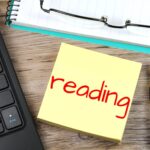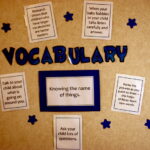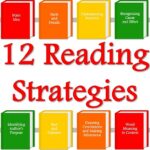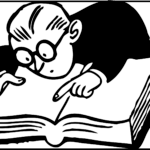49 Fourth Of July Reads To Get To Know Your Country Better

Fourth of July Read No. 1. The Red Badge of Courage by Stephen Crane
The Red Badge of Courage is an 1895 war novel by American author Stephen Crane. It is considered one of the most influential works in American literature. The novel, a depiction on the cruelty of the American Civil War, features a young recruit who overcomes initial fears to become a hero on the battlefield. The book made Crane an international success. (Library Journal)
2. Drums Along the Mohawk by Walter D. Edmonds
“Here is the story of the forgotten pioneers of the Mohawk Valley during the Revolutionary War. Here Gilbert Martin and his young wife struggled and lived and hoped. Combating hardships almost too great to endure, they helped give to America a legend which still stirs the heart. In the midst of love and hate, life and death, danger and disaster, they stuck to the acres which were theirs, and fought a war without ever quite understanding it. Drums Along the Mohawk has been an American classic since its original publication in 1936.” (Back Cover, Syracuse University Press edition)
3. Run Silent, Run Deep by Edward L. Beach, Jr.
“This is a story of the silent service—the submarine crews which destroyed the Japanese merchant marine. A narrative taut with drama, told with the intimacy of a confession, it deals with two strong-headed men: their loves, their jealousies, and their destinies in the lonely and desperate struggle between the hunter and the hunted. (Author) Edward Beach re-creates with fidelity the anguish, agony, and triumphs of command decisions. In Commander Richardson, he has created a character who embodies all that is fine, all that is human, in an excellent naval officer. In a sense, Run Silent, Run Deep is a monument, not to the misfits and the mistakes, but to those men who rose to greatness under the sometimes unbearable tensions of action.” (Amazon)
4. The Killer Angels by Michael Shaara
“In the four most bloody and courageous days of our nation’s history, two armies fought for two conflicting dreams. One dreamed of freedom, the other of a way of life. Far more than rifles and bullets were carried into battle. There were memories. There were promises. There was love. And far more than men fell on those Pennsylvania fields. Bright futures, untested innocence, and pristine beauty were also the casualties of war. Michael Shaara’s Pulitzer Prize–winning masterpiece is unique, sweeping, unforgettable—the dramatic story of the battleground for America’s destiny.” (Amazon)
5. The Lords of Discipline by Pat Conroy
“As Will McLean begins his studies at the Carolina Military Institute, the American South is in turmoil over desegregation. An outsider to the harsh authoritarianism of the military, Will survives the school’s notorious freshman hazing, and avoids attention from its fabled and menacing secret society, the Ten.
“But when he is asked to mentor the school’s first black student, Will is drawn into the intense racial politics—and the threat of violence—simmering beneath the surface.
“Based on Conroy’s own military school experience and featuring his lush prose and richly drawn characters, The Lords of Discipline is a powerful story of a young man’s stand for justice and the friendship, love, and courage he finds along the way.” (Amazon)
6. Gone with the Wind by Margaret Mitchell
“This is the tale of Scarlett O’Hara, the spoiled, manipulative daughter of a wealthy plantation owner, who arrives at young womanhood just in time to see the Civil War forever change her way of life.” (Amazon)
7. The Bridges at Toko-Ri by James Michener
“In one of his beloved early bestsellers, Pulitzer Prize–winning author James A. Michener crafts a tale of the American men who fought the Korean War, detailing their exploits in the air as well as their lives on the ground. Young and innocent, they arrive in a place they have barely ever heard of, on a ship massive enough to carry planes and helicopters. Trained as professionals, they prepare for the rituals of war that countless men before them have endured, and face the same fears. They are American fighter pilots. Together they face an enemy they do not understand, knowing their only hope for survival is to win.” (Amazon)
8. The Green Berets by Robin Moore
“Robin Moore became one of the first true embedded journalists by training with and fighting alongside the Green Berets in Vietnam. Though fictionalized, his work is an eye-opening exposé of the horrors of the Vietnam War and the basis for the hit John Wayne movie of the same title. Taut, fast-paced, and interspersed with unforgettable accounts of combat, Moore’s novel features an American major who goes ‘native’ with Montagnard tribesmen, a courageous Vietnamese girl who poses as a rabid anti-American Communist to capture a murderous Viet Cong officer and the unforgettable acts of courage of soldiers in the field.” (Amazon)
9. The Great Santini by Pat Conroy
“Marine Col. Bull Meecham commands his home like a soldiers’ barracks. Cold and controlling, but also loving, Bull has complicated relationships with each member of his family—in particular, his eldest son, Ben.
“A born athlete who desperately seeks his father’s approval, Ben is determined to break out from the colonel’s shadow. With guidance from teachers at his new school, he strives to find the courage to stand up to his father once and for all.
“Inspired by Pat Conroy’s own difficult relationship with his father, The Great Santini is a captivating and unflinching portrayal of modern family, and a moving novel of a son determined to become his own man.” (Amazon)
10. The Hunt for Red October by Tom Clancy
“A military thriller so gripping in its action and so convincing in its accuracy that the author was rumored to have been debriefed by the White House. Its theme: the greatest espionage coup in history. Its story: the chase for a top secret Russian missile sub. The Hunt for Red October remains a masterpiece of military fiction by one of the world’s most popular authors, a man whose shockingly realistic scenarios continue to hold us in thrall.” (Amazon)
11. On the Road by Jack Kerouac
“Inspired by Jack Kerouac’s adventures with Neal Cassady, On the Road tells the story of two friends whose cross-country road trips are a quest for meaning and true experience. Written with a mixture of sad-eyed naivete and wild ambition and imbued with Kerouac’s love of America, his compassion for humanity, and his sense of language as jazz, On the Road is the quintessential American vision of freedom and hope, a book that changed American literature and changed anyone who has ever picked it up.” (Amazon)
12. Lincoln by Carl Sandburg
“Originally published in six volumes, which sold more than one million copies, Carl Sandburg’s Abraham Lincoln was praised as the most noteworthy historical biography of Sandburg’s generation. He later distilled this monumental work into one volume that critics and readers alike consider his greatest work of nonfiction, as well as the most distinguished, authoritative biography of Lincoln ever published.
“Growing up in an Illinois prairie town, Sandburg listened to stories of old-timers who had known Lincoln. By the time this single-volume edition was competed, he had spent a lifetime studying, researching, and writing about our 16th president. His extraordinary portrait brings fully to life the country lawyer who would become one of the most influential and beloved presidents of the American republic.” (Amazon)
13. The Great Gatsby by F. Scott Fitzgerald
“T. S. Eliot read it three times and saw it as the ‘first step’ American fiction had taken since Henry James; H. L. Mencken praised ‘the charm and beauty of the writing,’ as well as Fitzgerald’s sharp social sense; and Thomas Wolfe hailed it as Fitzgerald’s ‘best work’ thus far. The story of the fabulously wealthy Jay Gatsby and his love for the beautiful Daisy Buchanan, of lavish parties on Long Island at a time when, The New York Times remarked, ‘gin was the national drink and sex the national obsession,’ it is an exquisitely crafted tale of America in the 1920s that resonates with the power of myth.” (Amazon)
14. 1776 by David McCullough
“America’s beloved and distinguished historian presents, in a book of breathtaking excitement, drama, and narrative force, the stirring story of the year of our nation’s birth, 1776, interweaving, on both sides of the Atlantic, the actions and decisions that led Great Britain to undertake a war against her rebellious colonial subjects and that placed America’s survival in the hands of George Washington.” (Amazon)
15. The Sound and the Fury by William Faulkner
“The Sound and the Fury is the tragedy of the Compson family, featuring some of the most memorable characters in literature: beautiful, rebellious Caddy; the manchild Benjy; haunted, neurotic Quentin; Jason, the brutal cynic; and Dilsey, their black servant. Their lives fragmented and harrowed by history and legacy, the character’s voices and actions mesh to create what is arguably Faulkner’s masterpiece and one of the greatest novels of the twentieth century.” (Amazon)
16. The Adventures of Huckleberry Finn by Mark Twain
“‘All modern American literature comes from one book by Mark Twain called Huckleberry Finn. It’s the best book we’ve had,’ declared Ernest Hemingway. Millions of readers around the world would agree, having climbed aboard the raft with young Huck and Jim, the runaway slave, to drift along the Mississippi on a voyage of adventure and self-discovery.” (Amazon)
17. Leaves of Grass by Walt Whitman
“The poems are loosely connected and each represents Whitman’s celebration of his philosophy of life and humanity. This book is notable for its discussion of delight in sensual pleasures during a time when such candid displays were considered immoral. Where much previous poetry, especially English, relied on symbolism, allegory, and meditation on the religious and spiritual, Leaves of Grass (particularly the first edition) exalted the body and the material world. Influenced by Ralph Waldo Emerson and the Transcendentalist movement, itself an offshoot of Romanticism, Whitman’s poetry praises nature and the individual human’s role in it. However, much like Emerson, Whitman does not diminish the role of the mind or the spirit; rather, he elevates the human form and the human mind, deeming both worthy of poetic praise.” (Amazon)
18. The Namesake by Jhumpa Lahiri
“The Namesake takes the Ganguli family from their tradition-bound life in Calcutta through their fraught transformation into Americans. On the heels of their arranged wedding, Ashoke and Ashima Ganguli settle together in Cambridge, Massachusetts. An engineer by training, Ashoke adapts far less warily than his wife, who resists all things American and pines for her family. When their son is born, the task of naming him betrays the vexed results of bringing old ways to the new world. Named for a Russian writer by his Indian parents in memory of a catastrophe years before, Gogol Ganguli knows only that he suffers the burden of his heritage as well as his odd, antic name. Lahiri brings great empathy to Gogol as he stumbles along the first-generation path, strewn with conflicting loyalties, comic detours, and wrenching love affairs. With penetrating insight, she reveals not only the defining power of the names and expectations bestowed upon us by our parents, but also the means by which we slowly, sometimes painfully, come to define ourselves.” (Amazon)
19. Moneyball: The Art of Winning an Unfair Game by Michael Lewis
“In a narrative full of fabulous characters and brilliant excursions into the unexpected, Michael Lewis follows the low-budget Oakland A’s, visionary general manager Billy Beane, and the strange brotherhood of amateur baseball theorists. They are all in search of new baseball knowledge—insights that will give the little guy who is willing to discard old wisdom the edge over big money.” (Amazon)
20. Their Eyes Were Watching God by Zora Neale Hurston
“One of the most important and enduring books of the twentieth century, Their Eyes Were Watching God brings to life a Southern love story with the wit and pathos found only in the writing of Zora Neale Hurston. Out of print for almost thirty years—due largely to initial audiences’ rejection of its strong black female protagonist—Hurston’s classic has since its 1978 reissue become perhaps the most widely read and highly acclaimed novel in the canon of African-American literature.” (Amazon)
21. The Grapes of Wrath by John Steinbeck
“First published in 1939, Steinbeck’s Pulitzer Prize-winning epic of the Great Depression chronicles the Dust Bowl migration of the 1930s and tells the story of one Oklahoma farm family, the Joads—driven from their homestead and forced to travel west to the promised land of California. Out of their trials and their repeated collisions against the hard realities of an America divided into Haves and Have-Nots evolves a drama that is intensely human yet majestic in its scale and moral vision, elemental yet plainspoken, tragic but ultimately stirring in its human dignity. A portrait of the conflict between the powerful and the powerless, of one man’s fierce reaction to injustice, and of one woman’s stoical strength, the novel captures the horrors of the Great Depression and probes into the very nature of equality and justice in America. At once a naturalistic epic, captivity narrative, road novel, and transcendental gospel, Steinbeck’s powerful landmark novel is perhaps the most American of American Classics.” (Back Cover)
22. Beloved by Toni Morrison
“Staring unflinchingly into the abyss of slavery, this spellbinding novel transforms history into a story as powerful as Exodus and as intimate as a lullaby. Sethe, its protagonist, was born a slave and escaped to Ohio, but eighteen years later she is still not free. She has too many memories of Sweet Home, the beautiful farm where so many hideous things happened. And Sethe’s new home is haunted by the ghost of her baby, who died nameless and whose tombstone is engraved with a single word: Beloved. Filled with bitter poetry and suspense as taut as a rope, Beloved is a towering achievement.” (Amazon)
23. To Kill a Mockingbird by Harper Lee
“One of the best-loved stories of all time, To Kill a Mockingbirdhas been translated into more than forty languages, sold more than thirty million copies worldwide, served as the basis for an enormously popular motion picture, and was voted one of the best novels of the twentieth century by librarians across the country. A gripping, heart-wrenching, and wholly remarkable tale of coming-of-age in a South poisoned by virulent prejudice, it views a world of great beauty and savage inequities through the eyes of a young girl, as her father-a crusading local lawyer-risks everything to defend a black man unjustly accused of a terrible crime.” (Amazon)
24. Native Son by Richard Wright
“Right from the start, Bigger Thomas had been headed for jail. It could have been for assault or petty larceny; by chance, it was for murder and rape. Native Son tells the story of this young black man caught in a downward spiral after he kills a young white woman in a brief moment of panic. Set in Chicago in the 1930s, Wright’s powerful novel is an unsparing reflection on the poverty and feelings of hopelessness experienced by people in inner cities across the country and of what it means to be black in America.” (Amazon)
25. Uncle Tom’s Cabin by Harriet Beecher Stowe
“Selling more than 300,000 copies the first year it was published, Stowe’s powerful abolitionist novel fueled the fire of the human rights debate in 1852. Denouncing the institution of slavery in dramatic terms, the incendiary novel quickly draws the reader into the world of slaves and their masters.
“Stowe’s characters are powerfully and humanly realized in Uncle Tom, a majestic and heroic slave whose faith and dignity are never corrupted; Eliza and her husband, George, who elude slave catchers and eventually flee a country that condones slavery; Simon Legree, a brutal plantation owner; Little Eva, who suffers emotionally and physically from the suffering of slaves; and fun-loving Topsy, Eva’s slave playmate.
“Critics, scholars, and students are today revisiting this monumental work with a new objectivity, focusing on Stowe’s compelling portrayal of women and the novel’s theological underpinnings.” (Amazon)
26. For Whom the Bell Tolls by Ernest Hemingway
“What can be worse than war? Only the Civil War. Spain, May 1937. The first year of the Civil War is coming to end. Robert Jordan is a young teacher and socialist from America. He comes to Spain like many thousands others like him to help people who are his kindred spirits. The book describes three days of his life he spent at the front. Robert is a demolition man. He gets an order to blow up the bridge at the enemy’s rear. This task is a part of the offensive operation of the Republican Guard. After getting to the right place, Robert meets the partisans who live in the mountains near the bridge. The partisans should help him even if it costs them their lives. There are brave men and cowards, kind and reliable, traitors among them.” (Amazon)
27. Bury My Heart at Wounded Knee by Dee Brown
Spectacular read from Brown, and a reminder that despite the goodness of America, there were some horrible things done to the native inhabitants along the way. (Amazon)
28. John Adams by David McCullough
McCullough is just showing off at this point with his copiously researched historical records of America’s past. John Adams is no exception, and it was used as the basis of the popular HBO mini-series. (Amazon)
29. Fahrenheit 451 by Ray Bradbury
Bradbury’s seminal work is more relevant today than ever before. His is a world where books are burned for being too offensive. The sad — and prescient — thing about it, is that the edict does not come from the government, but from the people themselves. A reminder that not all free speech is popular, but must be allowed, no matter what. (Amazon)
30. Travels with Charley: In Search of America by John Steinbeck
“In September 1960, John Steinbeck embarked on a journey across America. He felt that he might have lost touch with the country, with its speech, the smell of its grass and trees, its color and quality of light, the pulse of its people. To reassure himself, he set out on a voyage of rediscovery of the American identity, accompanied by a distinguished French poodle named Charley; and riding in a three-quarter-ton pickup truck named Rocinante.” This is the famous author’s account. (Amazon)
31. The Jungle by Upton Sinclair
The depictions of factory life are unforgettably rancid in this classic American shocker and treatise for socialism. Regardless of what you think about that way of government, Sinclair’s investigative work does create an accurate picture of working conditions at the time and it initiated a call for change regarding labor conditions. Perhaps we’re trending too far that direction these days, but at the time, it was a needed document. (Amazon)
32. Lonesome Dove by Larry McMurtry
If you don’t have time to squeeze in a reading of this magnum opus from McMurtry over the holiday, at least make time for the extraordinary mini-series starring Robert Duvall and Tommy Lee Jones. Still, do not neglect this depiction of the “Wild West” as it really was. It’s an unforgettable drama and a testament of the power of friendship. (Amazon)
33. The Heart Is a Lonely Hunter by Carson McCullers
“At its center is the deaf-mute John Singer, who becomes the confidant for various types of misfits in a Georgia mill town during the 1930s. Each one yearns for escape from small town life. When Singer’s mute companion goes insane, Singer moves into the Kelly house, where Mick Kelly, the book’s heroine (and loosely based on McCullers), finds solace in her music. Wonderfully attuned to the spiritual isolation that underlies the human condition, and with a deft sense for racial tensions in the South, McCullers spins a haunting, unforgettable story that gives voice to the rejected, the forgotten, and the mistreated—and, through Mick Kelly, gives voice to the quiet, intensely personal search for beauty.” (Amazon)
34. Invisible Man by Ralph Ellison
“Invisible Man is a milestone in American literature, a book that has continued to engage readers since its appearance in 1952. A first novel by an unknown writer, it remained on the bestseller list for sixteen weeks, won the National Book Award for fiction, and established Ralph Ellison as one of the key writers of the century. The nameless narrator of the novel describes growing up in a black community in the South, attending a Negro college from which he is expelled, moving to New York and becoming the chief spokesman of the Harlem branch of “the Brotherhood”, and retreating amid violence and confusion to the basement lair of the Invisible Man he imagines himself to be. The book is a passionate and witty tour de force of style, strongly influenced by T.S. Eliot’s The Waste Land, Joyce, and Dostoevsky.” (Amazon)
35. The Crucible by Arthur Miller
“The place is Salem, Massachusetts, in 1692, an enclave of rigid piety huddled on the edge of a wilderness. Its inhabitants believe unquestioningly in their own sanctity. But in Arthur Miller’s edgy masterpiece, that very belief will have poisonous consequences when a vengeful teenager accuses a rival of witchcraft—and then when those accusations multiply to consume the entire village.
“First produced in 1953, at a time when America was convulsed by a new epidemic of witch-hunting, The Crucible brilliantly explores the threshold between individual guilt and mass hysteria, personal spite and collective evil. It is a play that is not only relentlessly suspenseful and vastly moving but that compels readers to fathom their hearts and consciences in ways that only the greatest theater ever can.” (Amazon)
36. A People’s History of the United States by Howard Zinn
“Since its original landmark publication in 1980, A People’s History of the United States has been chronicling American history from the bottom up, throwing out the official version of history taught in schools—with its emphasis on great men in high places—to focus on the street, the home, and the workplace.
“Known for its lively, clear prose as well as its scholarly research, A People’s History of the United Statesis the only volume to tell America’s story from the point of view of—and in the words of—America’s women, factory workers, African-Americans, Native Americans, the working poor, and immigrant laborers. As historian Howard Zinn shows, many of our country’s greatest battles—the fights for a fair wage, an eight-hour workday, child-labor laws, health and safety standards, universal suffrage, women’s rights, racial equality—were carried out at the grassroots level, against bloody resistance.
“Covering Christopher Columbus’s arrival through President Clinton’s first term, A People’s History of the United States, which was nominated for the American Book Award in 1981, features insightful analysis of the most important events in our history.” (Amazon)
37. Battle Cry of Freedom by James M. McPherson
“James McPherson’s fast-paced narrative fully integrates the political, social, and military events that crowded the two decades from the outbreak of one war in Mexico to the ending of another at Appomattox. Packed with drama and analytical insight, the book vividly recounts the momentous episodes that preceded the Civil War–the Dred Scott decision, the Lincoln-Douglas debates, John Brown’s raid on Harper’s Ferry–and then moves into a masterful chronicle of the war itself–the battles, the strategic maneuvering on both sides, the politics, and the personalities. Particularly notable are McPherson’s new views on such matters as the slavery expansion issue in the 1850s, the origins of the Republican Party, the causes of secession, internal dissent and anti-war opposition in the North and the South, and the reasons for the Union’s victory.” (Amazon)
38. Alexander Hamilton by Ron Chernow
“Chernow’s biography gives Hamilton his due and sets the record straight, deftly illustrating that the political and economic greatness of today’s America is the result of Hamilton’s countless sacrifices to champion ideas that were often wildly disputed during his time. “To repudiate his legacy,” Chernow writes, “is, in many ways, to repudiate the modern world.” Chernow here recounts Hamilton’s turbulent life: an illegitimate, largely self-taught orphan from the Caribbean, he came out of nowhere to take America by storm, rising to become George Washington’s aide-de-camp in the Continental Army, coauthoring The Federalist Papers, founding the Bank of New York, leading the Federalist Party, and becoming the first Treasury Secretary of the United States.Historians have long told the story of America’s birth as the triumph of Jefferson’s democratic ideals over the aristocratic intentions of Hamilton. Chernow presents an entirely different man, whose legendary ambitions were motivated not merely by self-interest but by passionate patriotism and a stubborn will to build the foundations of American prosperity and power. His is a Hamilton far more human than we’ve encountered before—from his shame about his birth to his fiery aspirations, from his intimate relationships with childhood friends to his titanic feuds with Jefferson, Madison, Adams, Monroe, and Burr, and from his highly public affair with Maria Reynolds to his loving marriage to his loyal wife Eliza. And never before has there been a more vivid account of Hamilton’s famous and mysterious death in a duel with Aaron Burr in July of 1804.” (Amazon)
39. Lies My Teacher Told Me by James W. Loewen
“What started out as a survey of the twelve leading American history textbooks has ended up being what the San Francisco Chronicle calls “an extremely convincing plea for truth in education.” In Lies My Teacher Told Me, James W. Loewen brings history alive in all its complexity and ambiguity. Beginning with pre-Columbian history and ranging over characters and events as diverse as Reconstruction, Helen Keller, the first Thanksgiving, and the My Lai massacre, Loewen offers an eye-opening critique of existing textbooks, and a wonderful retelling of American history as it should—and could—be taught to American students.” (Amazon)
40. Mayflower: A Story of Courage, Community, and War by Nathaniel Philbrick
“How did America begin? That simple question launches the acclaimed author of Bunker Hill and Valiant Ambition on an extraordinary journey to understand the truth behind our most sacred national myth: the voyage of the Mayflower and the settlement of Plymouth Colony. As Philbrick reveals in this electrifying history of the Pilgrims, the story of Plymouth Colony was a fifty-five year epic that began in peril and ended in war. New England erupted into a bloody conflict that nearly wiped out the English colonists and natives alike. These events shaped the existing communites and the country that would grow from them.” (Amazon)
41. His Excellency: George Washington by Joseph J. Ellis
“…Ellis assesses George Washington as a military and political leader and a man whose “statue-like solidity” concealed volcanic energies and emotions.
“Here is the impetuous young officer whose miraculous survival in combat half-convinced him that he could not be killed. Here is the free-spending landowner whose debts to English merchants instilled him with a prickly resentment of imperial power. We see the general who lost more battles than he won and the reluctant president who tried to float above the partisan feuding of his cabinet. His Excellency is a magnificent work, indispensable to an understanding not only of its subject but also of the nation he brought into being.” (Amazon)
42. The Civil War: A Narrative by Shelby Foote
“This first volume of Shelby Foote’s classic narrative of the Civil War opens with Jefferson Davis’s farewell to the United Senate and ends on the bloody battlefields of Antietam and Perryville, as the full, horrible scope of America’s great war becomes clear. Exhaustively researched and masterfully written, Foote’s epic account of the Civil War unfolds like a classic novel.” (Amazon)
43. Manhunt: The 12-Day Chase for Lincoln’s Killer by James L. Swanson
“The murder of Abraham Lincoln set off the greatest manhunt in American history. From April 14 to April 26, 1865, the assassin, John Wilkes Booth, led Union cavalry and detectives on a wild twelve-day chase through the streets of Washington, D.C., across the swamps of Maryland, and into the forests of Virginia, while the nation, still reeling from the just-ended Civil War, watched in horror and sadness.
“James L. Swanson’s Manhunt is a fascinating tale of murder, intrigue, and betrayal. A gripping hour-by-hour account told through the eyes of the hunted and the hunters, this is history as you’ve never read it before.” (Amazon)
44. Benjamin Franklin: An American Life by Walter Isaacson
“In a sweeping narrative that follows Franklin’s life from Boston to Philadelphia to London and Paris and back, Walter Isaacson chronicles the adventures of the runaway apprentice who became, over the course of his eighty-four-year life, America’s best writer, inventor, media baron, scientist, diplomat, and business strategist, as well as one of its most practical and ingenious political leaders.” (Amazon)
45. Citizen Soldiers: The U.S. Army from the Normandy Beaches to the Bulge to the Surrender of Germany by Stephen E. Ambrose
“In this riveting account, historian Stephen E. Ambrose continues where he left off in his #1 bestseller D-Day. Citizen Soldiers opens at 0001 hours, June 7, 1944, on the Normandy beaches, and ends at 0245 hours, May 7, 1945, with the allied victory. It is biography of the US Army in the European Theater of Operations, and Ambrose again follows the individual characters of this noble, brutal, and tragic war. From the high command down to the ordinary soldier, Ambrose draws on hundreds of interviews to re-create the war experience with startling clarity and immediacy. From the hedgerows of Normandy to the overrunning of Germany, Ambrose tells the real story of World War II from the perspective of the men and women who fought it.” (Amazon)
46. The Right Stuff by Tom Wolfe
“Millions of words have poured forth about man’s trip to the moon, but until now few people have had a sense of the most engrossing side of the adventure; namely, what went on in the minds of the astronauts themselves – in space, on the moon, and even during certain odysseys on earth. It is this, the inner life of the astronauts, that Tom Wolfe describes with his almost uncanny empathetic powers, that made The Right Stuff a classic.” (Amazon)
47. Common Sense by Thomas Paine
The language may be a tad hard for American audiences of today to get through, but there really is no better reminder of why we are who we are than Common Sense, which laid out the case for independence just prior to the colonists’ decision to break free from England. Highly influential. (Amazon)
48. Shattered: Inside Hillary Clinton’s Doomed Campaign by Jonathan Allen and Amie Parnes
Perhaps no two books will be more relevant to the lay of modern politics and the divisions that currently exist within our borders than Nos. 49 and 50. Shattered takes an in-depth look at why Hillary Clinton failed to win the presidency, and it does so in as even-handed of a manner as you can possibly find. The authors interviewed more than 100 operatives from within the Clinton campaign — some under the cover of anonymity — to present a look at the Democratic side (and failings) in the 2016 general election. (Amazon)
And just to keep it “fair and balanced” as well as provide insight into the other side of one of the most turbulent presidential campaigns in the history of the U.S. …
Fourth of July Read No. 49. Game of Thorns: The Inside Story of Hillary Clinton’s Failed Campaign and Donald Trump’s Winning Strategy by Doug Wead
Wead’s book feels like it comes from a more partisan place, but his history advising two Republican Presidents probably has something to do with that. Nevertheless, he presents a compelling narrative from the other side to show how victory came from apparent chaos … first during the primaries and later into the general election. (Amazon)
So there you have it, readers … and we do mean readers. Forty-nine books that should give you a good depiction of our country this Fourth of July — from its earliest beginnings, through its most turbulent times, and yes, into the heroics and accomplishments. Happy Birthday, America.
[Featured Image by Flickr Creative Commons]








